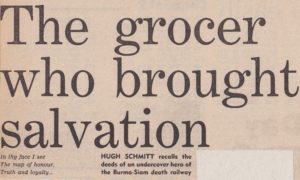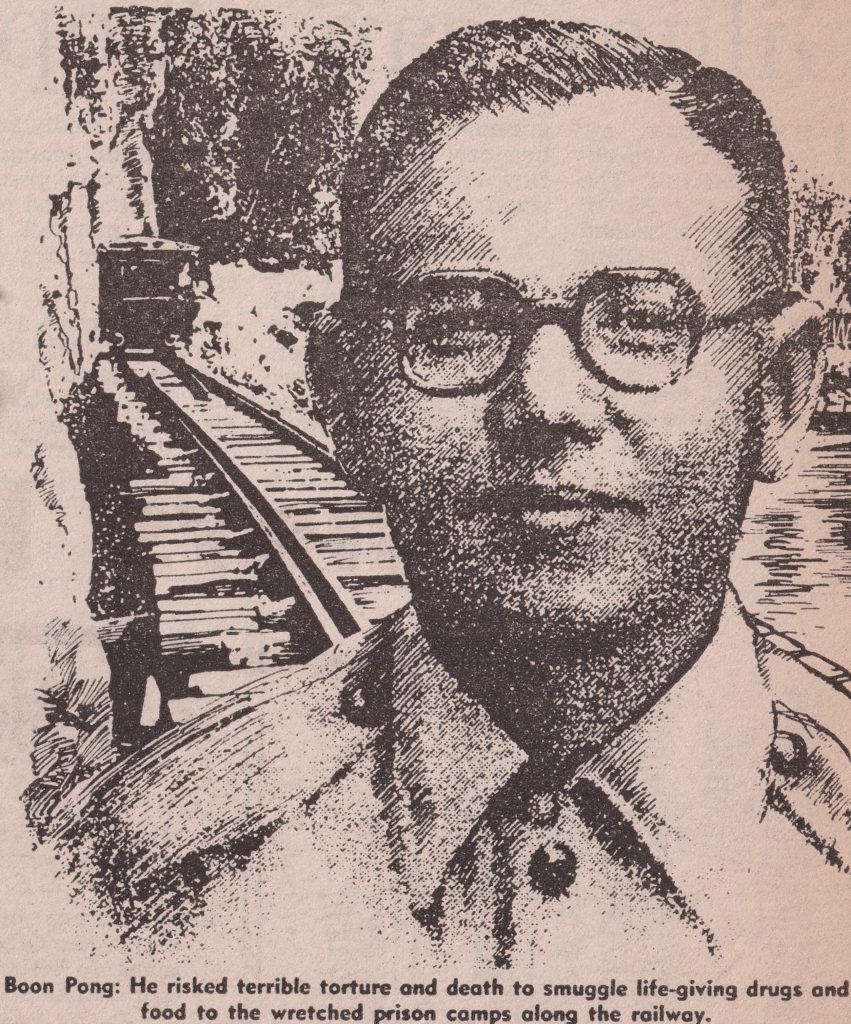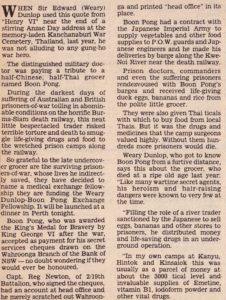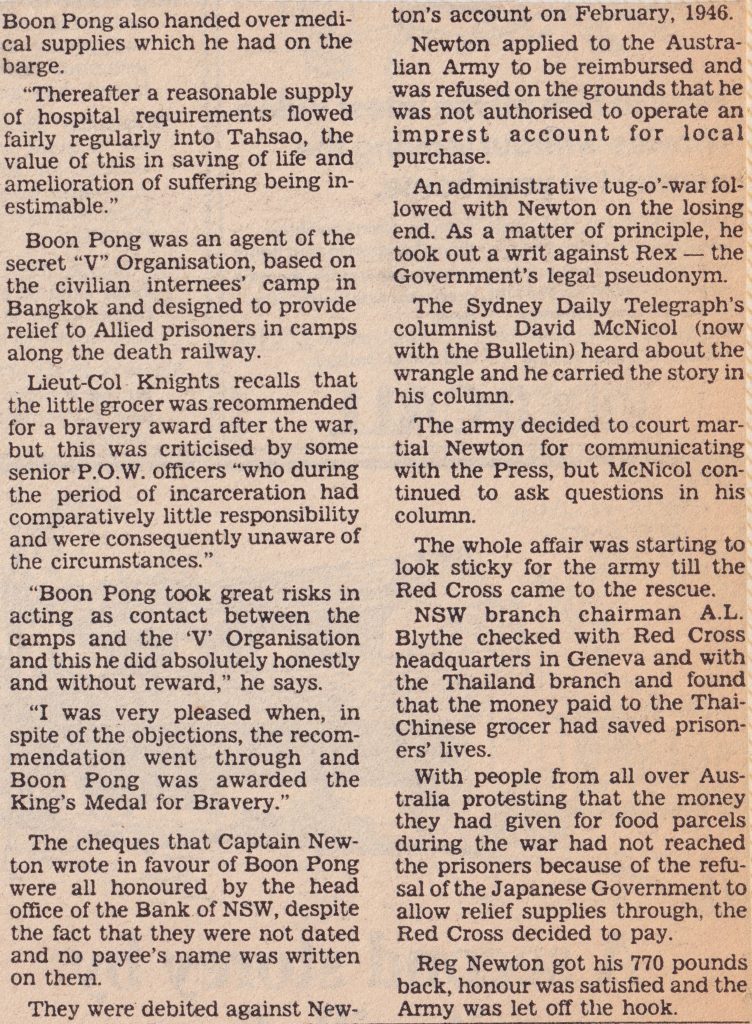BOONPONG – SAVIOUR TO LARGE NUMBERS OF SICK POWS FROM KANCHANABURI
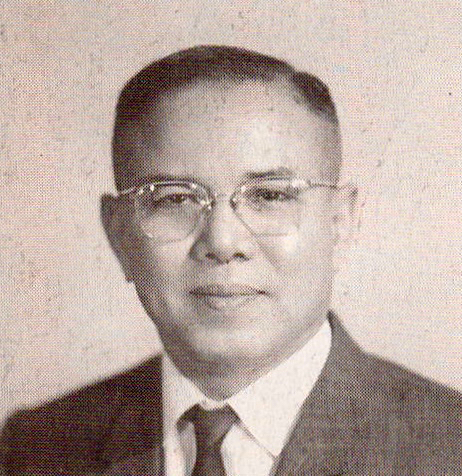
There is no doubt without the assistance and bravery of this man, many more hundreds of POWs would have died. He managed to get messages, medicines, money and contraband to several camps. His wife was also his accomplice, assisting him whenever she was able. She would entertain Japanese soldiers who visited her store while her husband talked with Camp doctors and leaders who managed to persuade the Japanese guards to drive to Kanchanaburi for supplies. Boonpong’s wife had learnt a little Japanese from her Japanese neighbour.
Boonpong was contracted by the Japanese to provide supplies to the railway workforce. It was during his delivery visits to work camps along the river/railway Boonpong was to see for himself the horrific conditions the POWs lived in.
He began to secretly work with a resistance group based in an internment camp Bangkok – the ‘V’ organisation, the source of BoonPong’s cash and drugs.
In early 1943 Boonpong acted as intermediary between the ‘V’ organisation and POWs. Most British civilians were interned in the Vajiravudh College, Bangkok. These included Mr. Peter Heath, Chief Officer of the Borneo Company involved in shipping and commence, Mr K. Gairdner of Siam Architects Imports Company and Dick Hempson of the Anglo-Thai Corporation importing business. Gairdner’s Thai wife, Millie was free to move about and soon learnt of the plight of large numbers of British POWs who had been working on the earlier stages of the rail construction – prior to Australians or Dutch.
Initial efforts had been paid for personally by group, but realising the magnitude of what was ahead, it was decided to raise funds from the general business community.
This was the beginning of what would become known as ‘V’ Organisation, later becoming two groups both names ‘V’.
Heath and Hempson later stated “Money was therefore raised from persons outside the Camp under guarantee of repayment in sterling after the war. The guarantees were originally signed by persons of standing within our camp or known to be possessed of means.”
Attempts were made through the Red Cross to contact the British Government to inform them of the POW’s plight and to obtain pledges of financial support for the reimbursements of all moneys raised after the war.
Four Railway Camps assisted by ‘V’ Organisation with considerable amounts of money (English Pounds) included No. 4 Group Base Hospital Camp Tarsau – 2,400, Tamarkan – 2,800, Tonchan – 933 and Tamuang – 1000.
The organisation included many foreign and local business owners who were able to raise large sums of money on loan. Millie was one of those who risked passing money and drugs directly to POWs via the many POW lorry drivers.
Amongst those Boonpong had personal dealings with many POWs. Included were Capt Reg Newton, 2/19th Btn who headed up D Force U Battalion, Colonel Toosey of Tamarkan, later Weary Dunlop and others. Boonpong as a Thai river trader and supplier to the Japanese first made contact with Colonel Toosey at Tamarkan. So began a system of smuggling aided by his daughter, to provide much needed medicines.
Boonpong’s barges eventually operated from Bampong to Takanun and during the wet season as far north at Neike.
Boonpong had personally lent his own money during the war (cashing POW cheques, lending money on watches etc to be redeemed after the war) that by 1947 Boonpoong was found to be in financial difficulties. A POW organisation raised funds and at least one British Division Association in response to Col. Toosey’s request donated nearly 40,000 pounds to enable him to set up a bus company in 1948.
Businessman and former mayor of Kanchanaburi from 1942-1945, Boonpong died January 1982 aged 76 years.
After the war, little was known in the outside world of Boonpong and his role.
Thai newspapers reported that in 1948 he was awarded the MBE by the British and Orange-Nassau by the Dutch.
In his 1985 address on Anzac Day at Kanchanaburi Weary Dunlop paid tribute to Boonpong and other Thais who had assisted POWs. In 1986 a Fellowship was established – a collaborative programme between the Royal Australian College of Surgeons and the Royal College of Surgeons Thailand providing Thai surgeons opportunities for surgical training attachments at Australian hospitals.
In 1998 the Australian Government at opening of Hellfire Pass Museum formally recognised the bravery of Boonpong, presenting his grandson with a Certificate of Appreciation for the ‘unrepayable debt’ owed to his grandfather. $50,000 donation was made to the Boonpong-Weary Dunlop Exchange Fellowship.
One cannot begin to imagine how many more hundreds, perhaps as many as a thousands of lives would have been lost without the efforts of the ‘V’ organisation and Boonpong.
Today we know the British and Australian Governments were most reluctant to repay these debts, to save lives of their soldiers! Several former POWs paid moneys themselves.
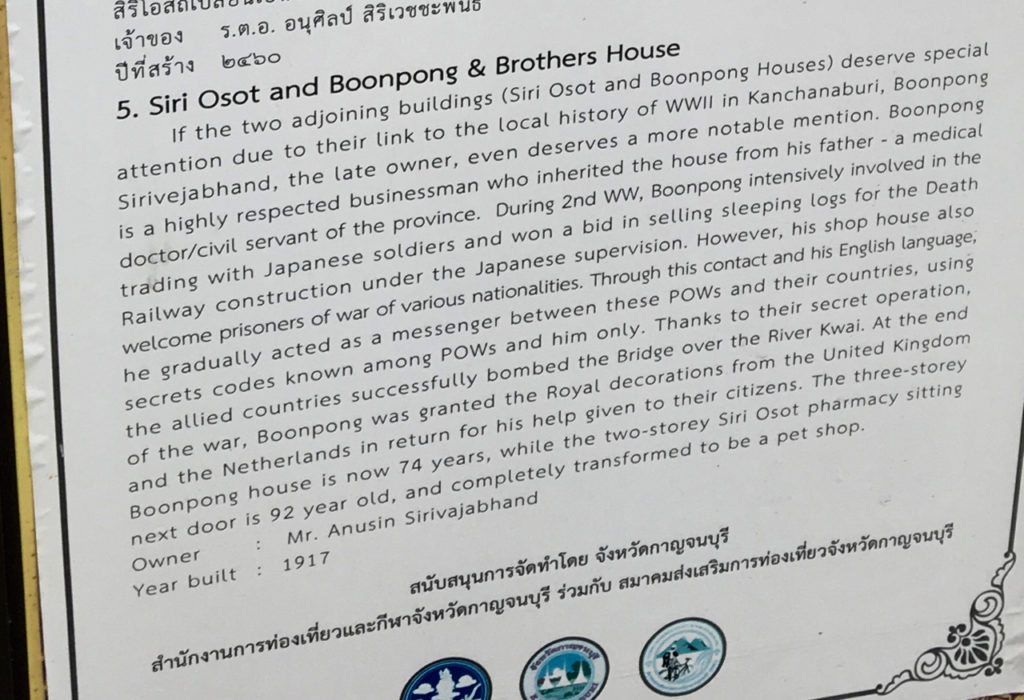
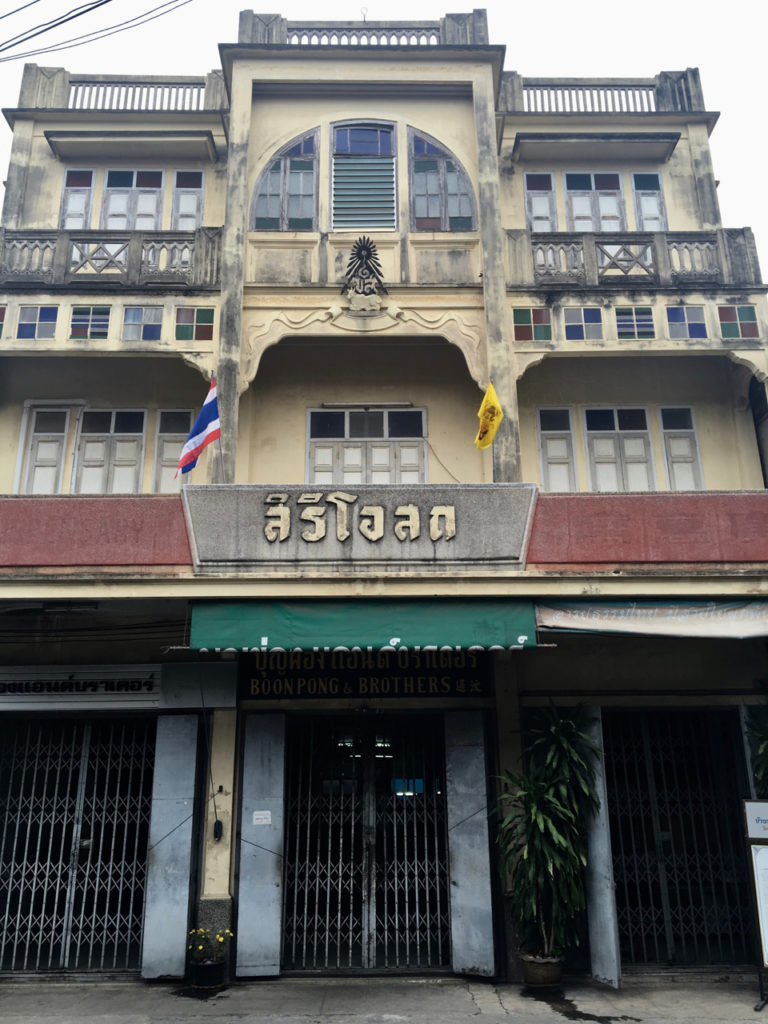
Above: the original building which housed Boonpong, his family and his grocery store in the old sector of town at 96 Pak Prak Road.
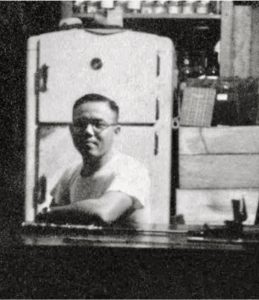
He not only risked his own life, but that of his wife and children.
Below: the streets of this old part of Kanchanaburi with older buildings taken 2018.
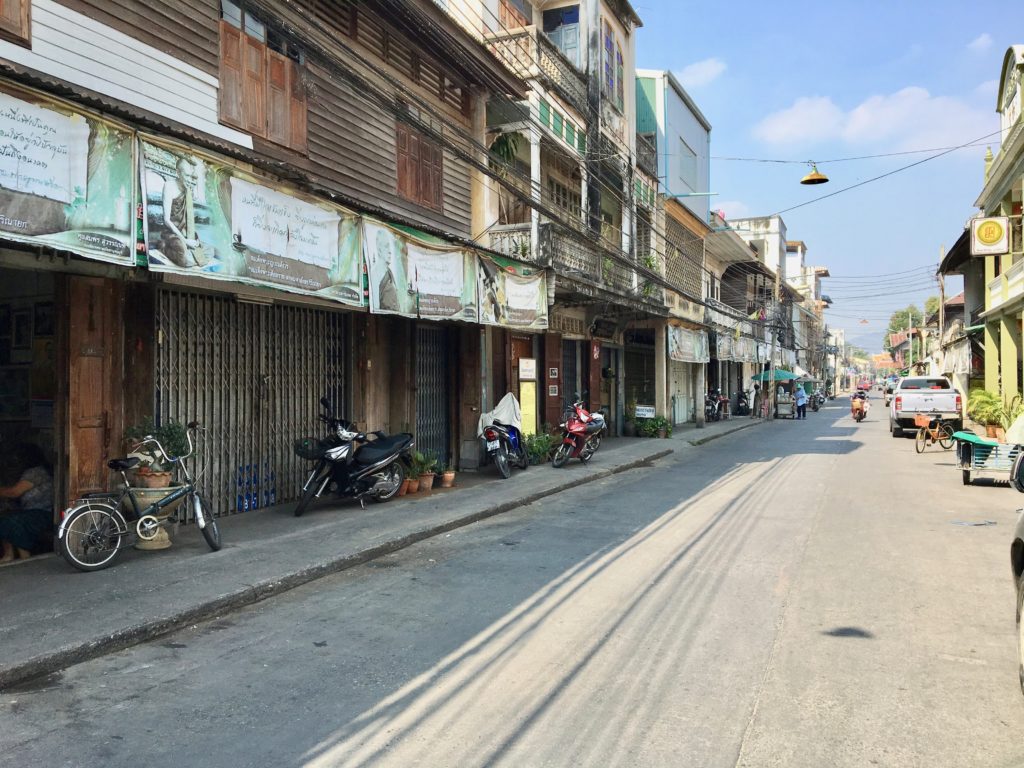
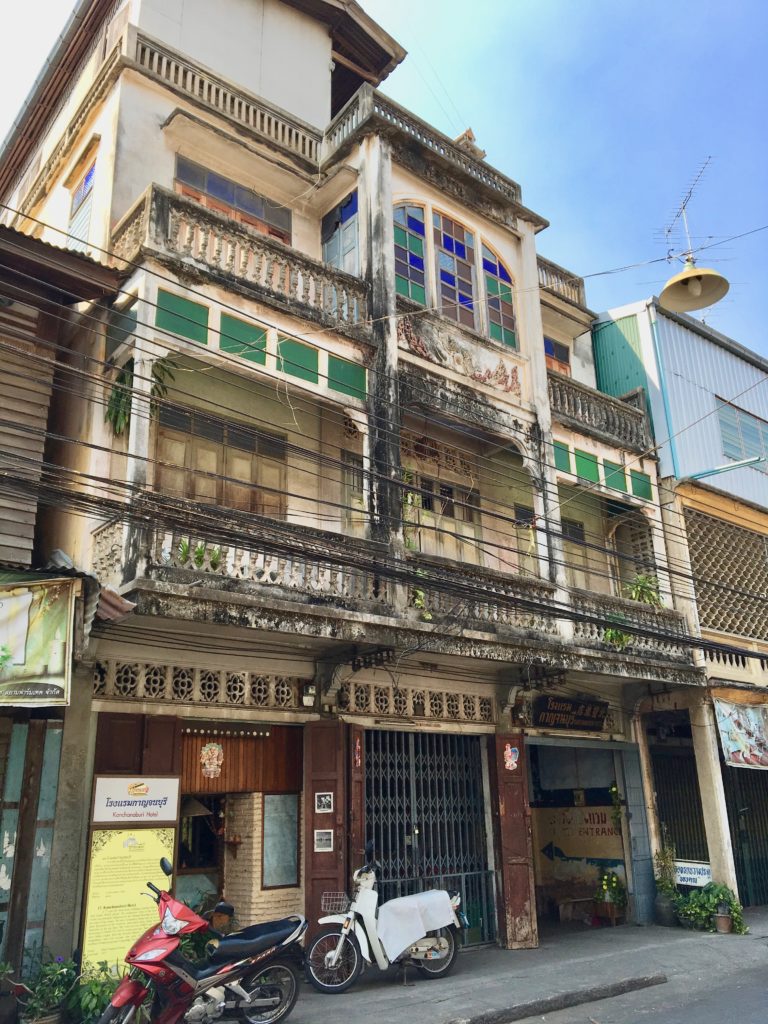
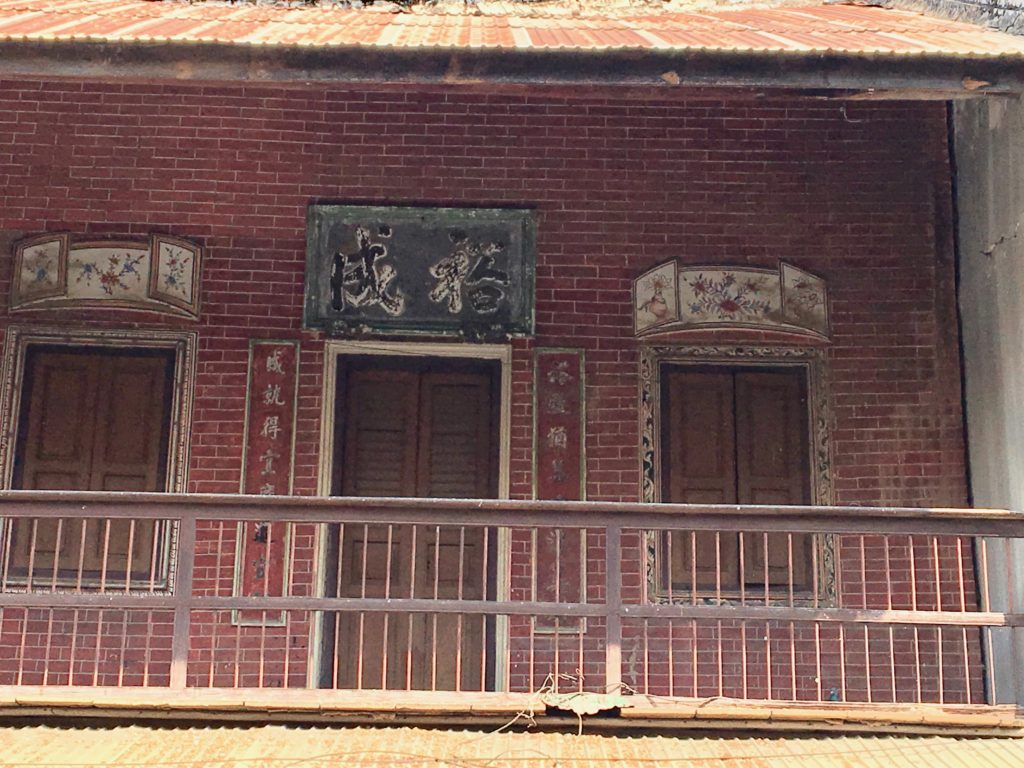
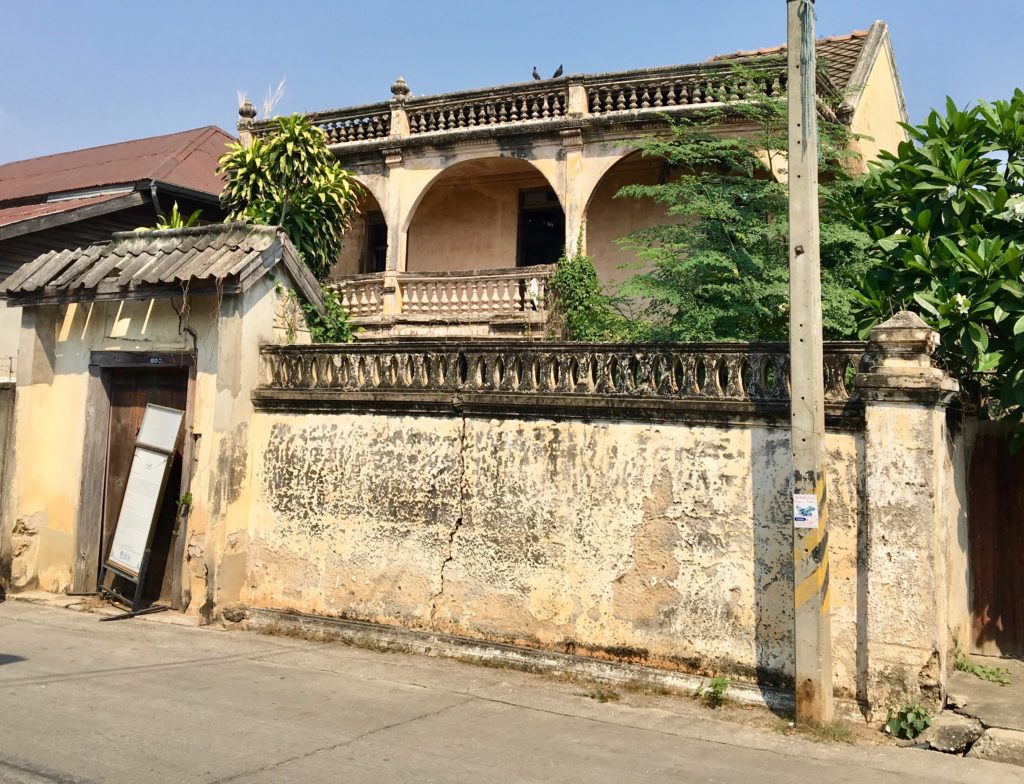
The achitecture of the old streets of Kanchanaburi.
CAPT. REG NEWTON, U BATTALION: having been entrained from Singapore to Bampong, then trucked to Kanchanaburi U Battalion found themselves at Aerodrome Camp,Kanchanaburi for about week without guards, leaving the men able to wander around freely.
Newton had initially been imprisoned at Pudu Prison, Kuala Lumpur, Malaya before being transferred to Changi. On the work parties at Purdu Newton learnt from the number of British soldiers, now POWs who had resided in Malaya prewar, and had contact with known local business owners and traders and able to purchase urgently required medicines and food.
Newton and his officers made enquiries as to whether there were any traders/business owners who spoke English. Newton was directed to Boon Poong who was a trader with his wife and brother-in-law Nai Lec, located in the centre of the old city. Boon Pong who informed him he had just secured a contract with the Japanese providing food supplies to ‘rail or barge head’, adding he expected to gain the Japanese contract for barge supplies to be delivered directly to work camps along the River Kwai.
Known for thinking on his feet, Newton immediately made arrangements to purchase straight from Boon Poong, agreeing take a whole barge load should he pass through their locations.
He also then purchased a small quantity of Briitsh Army medical supplies.
How to pay for these future supplies?
First Newton had received a share of ‘D’ Force funds paid at Changi to Lt Col McEarchen, 4th Anti Tank Regiment Commanding Officer of ‘D’ Force Thailand which consisted of four battalions of 555 men (S, T, U and V). The amount equalled Malay $4 per man equalling about Malay $2200.
Newton’s next source would the pay the men received from the Japs.
The third was a stroke of luck. Before departing Singapore, the Officers had searched the men’s haversacks to lighten their loads and came across a cheque book belonging to Sgt John French, 2/20th Btn – Bank of New South Wales, Wahroonga Branch. Newton crossed out Wahroonga and wrote in ‘Head Office’, Sydney where he himself had an account. Boon Poong agreed to hold the cheques until after the war when ‘Head Office’ Sydney would redeem them from Newton’s account.
‘U’ Force men confirmed this arrangement saying they would see Boon Pong up the line, knowing Newton had earlier made a deal to pay by cheque.
At this time. Newton had no idea of the extent of Boon Pong’s business, nor the Bangkok organisation which was the source of Boon Pong’s cash and drugs.
Below: from the Beattie Collection. The West Australian 25 April 1986
